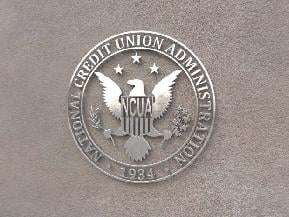LEEDS, U.K. – John Battle, the Labour Member of Parliament (MP) from Leeds, is worried about the three million English who are living in poverty and subject to doorstop lenders, the British term for predatory lenders. In a country with a population of approximately 50 million people, Battle sees credit unions as part of the solution, and he’s trying to sell the concept to Parliament by filing an Early Day Motion (EDM) 257. AN EDM is an English legislative tool. When approximately 200 MPs sign the motion it is then taken as a signal that there needs to be further activity on the issue. Battle has over 100 signatures, Ben Niblett, Battle’s Parliamentary Assistant told Credit Union Times. The full wording of the Early Day Motion reads: “That this House notes the extent of debt amongst those on a low income with over three million people entering into debt on their doorstep through extortionate lending; believes tackling debt and financial exclusion must be given priority in the Government’s anti-poverty strategy; and calls for coordination of the current fragmentary approach setting departmental policies and actions within complementary strategies to tackle financial exclusion and eradicate poverty, focusing on reforming the Social Fund, tackling extortionate lending and promoting affordable credit through credit unions.” Battle has been a long-time supporter of the credit union movement – he’s a member of Bramley Credit Union in Leeds – but he’s also worked with Church Action on Poverty since he was a co-ordinator in the 1980s. CAP is encouraging the action. On December 3rd they led a 100-person group to Parliament for the “End Debt on our Doorstop Action and Lobby Day”. The two groups are demanding: “tighter regulation of high interest lenders, reform and/or replacement of the failing Social Fund, greater funding for credit unions and other forms of social lending, banks and high street lenders to provide socially responsible services, fair debt recovery practices that take proper account of inability to pay.” Niblett said that despite the rather strong British economy, he has witnessed the growth of pawn brokers as well as check cashing services which charge exorbitant rates. Small, quick loans, also bear heavy charges to those who can least afford to pay them. Some of the doorstep lenders provide almost instant short-term cash for usury rates. Niblett pointed out that the post office does offer savings and checking accounts to those people too poor to be accepted at a bank, but they do not provide lending services which the poor need. Credit unions until July of last year were so severely limited on what they could offer, that they were only available to a few people. In July when the Financial Services Authority took over the regulation of credit unions, CUs were able to expand their memberships, the amount of savings they could accept and the amount and type of loans they could offer. Although Battle has not contacted them, a similar movement is going on in the Scottish Parliament also promoted by Debt on Our Doorstep. No Scottish working group member was available for comment. -
 Search
Search














 Copyright © 2024 ALM Global, LLC. All Rights Reserved.
Copyright © 2024 ALM Global, LLC. All Rights Reserved.